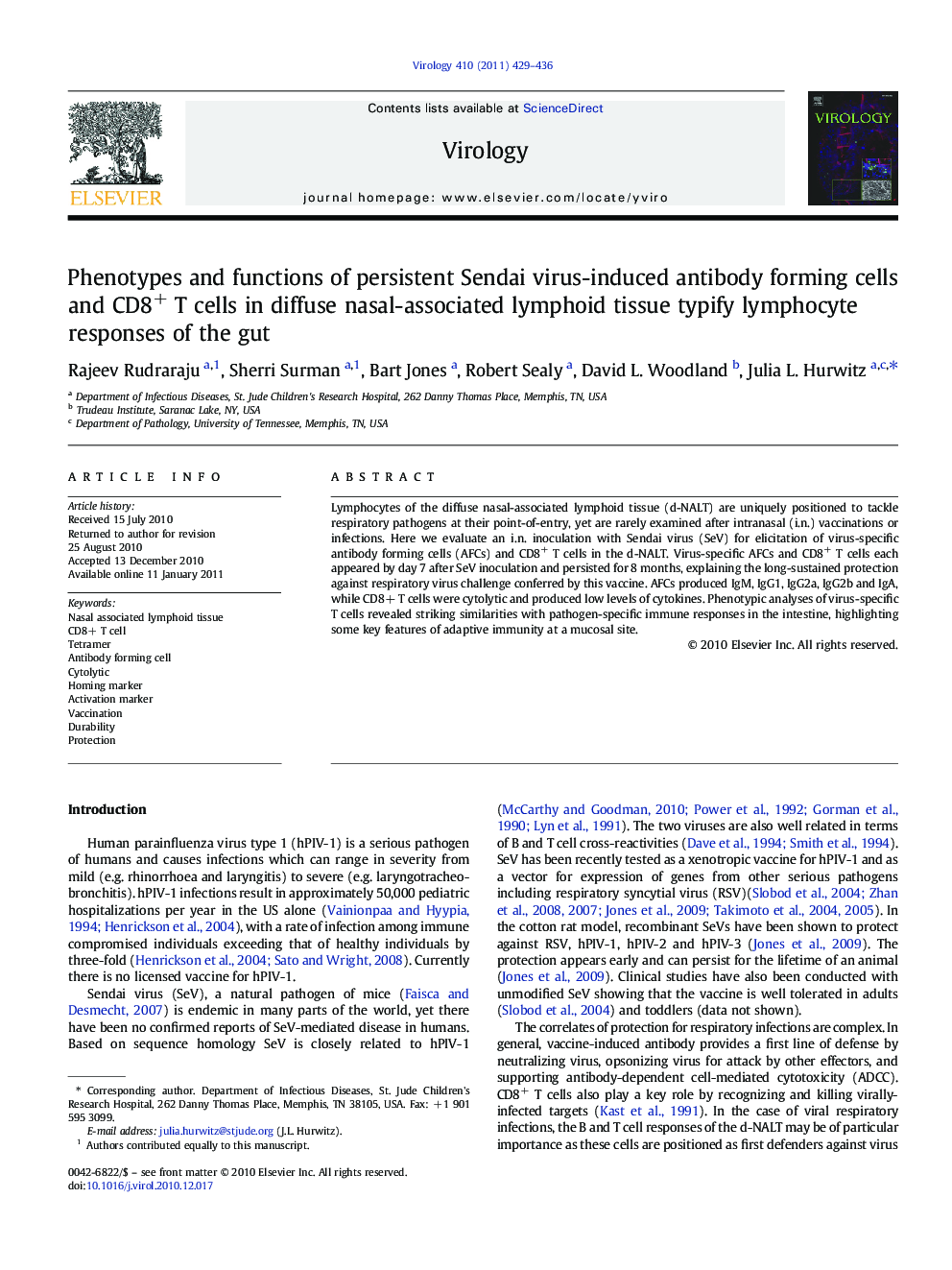| Article ID | Journal | Published Year | Pages | File Type |
|---|---|---|---|---|
| 3424706 | Virology | 2011 | 8 Pages |
Lymphocytes of the diffuse nasal-associated lymphoid tissue (d-NALT) are uniquely positioned to tackle respiratory pathogens at their point-of-entry, yet are rarely examined after intranasal (i.n.) vaccinations or infections. Here we evaluate an i.n. inoculation with Sendai virus (SeV) for elicitation of virus-specific antibody forming cells (AFCs) and CD8+ T cells in the d-NALT. Virus-specific AFCs and CD8+ T cells each appeared by day 7 after SeV inoculation and persisted for 8 months, explaining the long-sustained protection against respiratory virus challenge conferred by this vaccine. AFCs produced IgM, IgG1, IgG2a, IgG2b and IgA, while CD8+ T cells were cytolytic and produced low levels of cytokines. Phenotypic analyses of virus-specific T cells revealed striking similarities with pathogen-specific immune responses in the intestine, highlighting some key features of adaptive immunity at a mucosal site.
